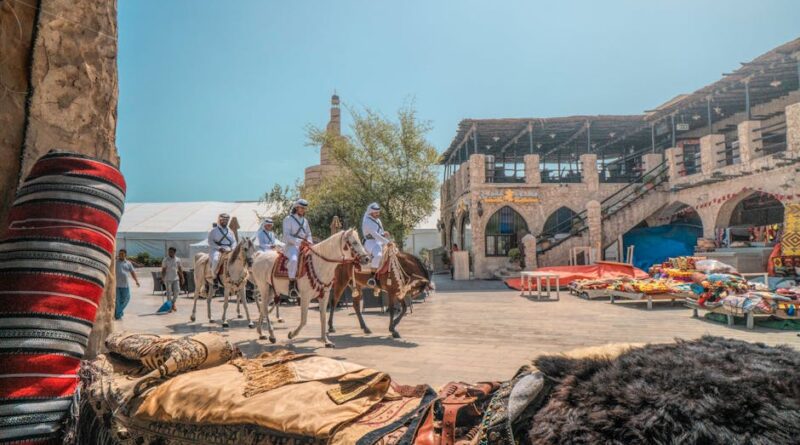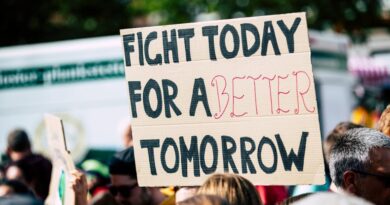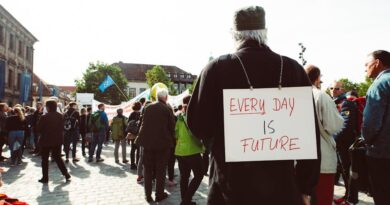How Global Events Shape Local Policies
Have you ever wondered why your town suddenly has new rules about recycling or public health? Often, these changes don’t just come from local leaders. They’re influenced by global events. Let’s dive into how what happens far away can affect life right here at home.
What Are Global Events?

Global events are occurrences that affect people worldwide. These can be political events, like elections in major countries, or environmental crises, such as climate change. Even trends in technology can be considered global events.
Take the COVID-19 pandemic as an example. It started in one part of the world but quickly changed how we live everywhere. Local governments had to adjust their policies to keep people safe, showing just how connected we all are.
How Do Global Events Influence Local Policies?

When a global event occurs, local governments often respond in several ways:
- Policy Adjustments: Local leaders might change laws or create new regulations.
- Funding Requests: They may seek more funds from higher levels of government to tackle new challenges.
- Public Awareness Campaigns: Local campaigns can inform citizens about new risks or initiatives.
For instance, after a significant climate summit, cities might introduce stricter emissions regulations. This helps them align with global goals while addressing local concerns about air quality.
What are Some Examples of This Influence?

Lets explore a few notable examples:
- Climate Change: After global climate agreements like the Paris Agreement, many cities adopted policies to reduce carbon emissions. This could mean more bike lanes or renewable energy initiatives.
- Economic Crises: The 2008 financial crisis led many cities to rethink their budgets. Local leaders had to create policies that stimulated job growth and supported struggling families.
- Health Crises: The COVID-19 pandemic prompted many local governments to implement health guidelines, like mask mandates and social distancing rules. These policies were shaped by global health recommendations.
Why Should We Care?

Understanding how global events shape local policies helps us recognize our role in the bigger picture. It empowers us to be informed citizens who can advocate for change. Local policies impact our daily lives, from public health to environmental protection.
Moreover, when we see a global issue, we can anticipate local changes. For example, if there’s a global movement toward renewable energy, we might soon see more solar panels popping up in our neighborhoods.
How Do Local Leaders Respond?
Local leaders often gather information from various sources to shape their responses:
- Data Analysis: They analyze data from studies and reports to understand the local implications of global events.
- Community Input: Local leaders may hold town hall meetings to hear from residents about their concerns and ideas.
- Cross-Agency Collaboration: They often work with state and federal agencies to align local policies with broader goals.
For example, after a natural disaster, local leaders may collaborate with national agencies to secure disaster relief funding and streamline rebuilding efforts.
What Are Some Common Misconceptions?
Many people think local policies are solely based on local issues. However, that’s not always the case. Here are a few common misconceptions:
- Global Events don’t Matter: Some believe that what happens in another country doesn’t affect their community. In reality, many local policies are direct responses to global events.
- All Changes Are Negative: While some policies can feel restrictive, others can lead to positive changes, like improved public health or environmental protections.
- Local Leaders Act Alone: Many think local leaders make decisions independently. In truth, they often rely on guidance and data from global organizations.
How Can We Stay Informed?
Staying informed about global events helps us understand local policies better. Here are some ways to keep up:
- Follow the News: Read articles or watch news segments that explain current events.
- Engage with Local Leaders: Attend town hall meetings and ask questions about new policies.
- Join Community Groups: These groups often discuss local issues and can provide insight into how global events affect your community.
Remember, knowledge is power! The more you know, the better you can advocate for policies that benefit your community.
What Can We Do About It?
Now that you know how global events shape local policies, what can you do? Here are some actionable takeaways:
- Get Involved: Participate in local governance by attending meetings or joining committees. Your voice matters!
- Educate Others: Share what you learn about the connection between global events and local policies with friends and family.
- Advocate for Change: If you see a local policy that doesn’t align with global goals, speak up. Contact your local representatives and express your concerns.
As individuals, we can make a difference. By understanding the connection between global events and local policies, we can advocate for a better future.
Conclusion
In conclusion, global events significantly influence local policies. From health crises to climate change, what happens around the world affects us at home. By staying informed and getting involved, we can be part of the solution. So, next time you see a new policy in your town, think about the global events that might have shaped it. Together, we can navigate these changes and help our community thrive.
For more insights on local governance, check out this post on local governance.



